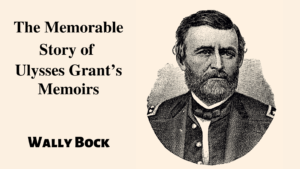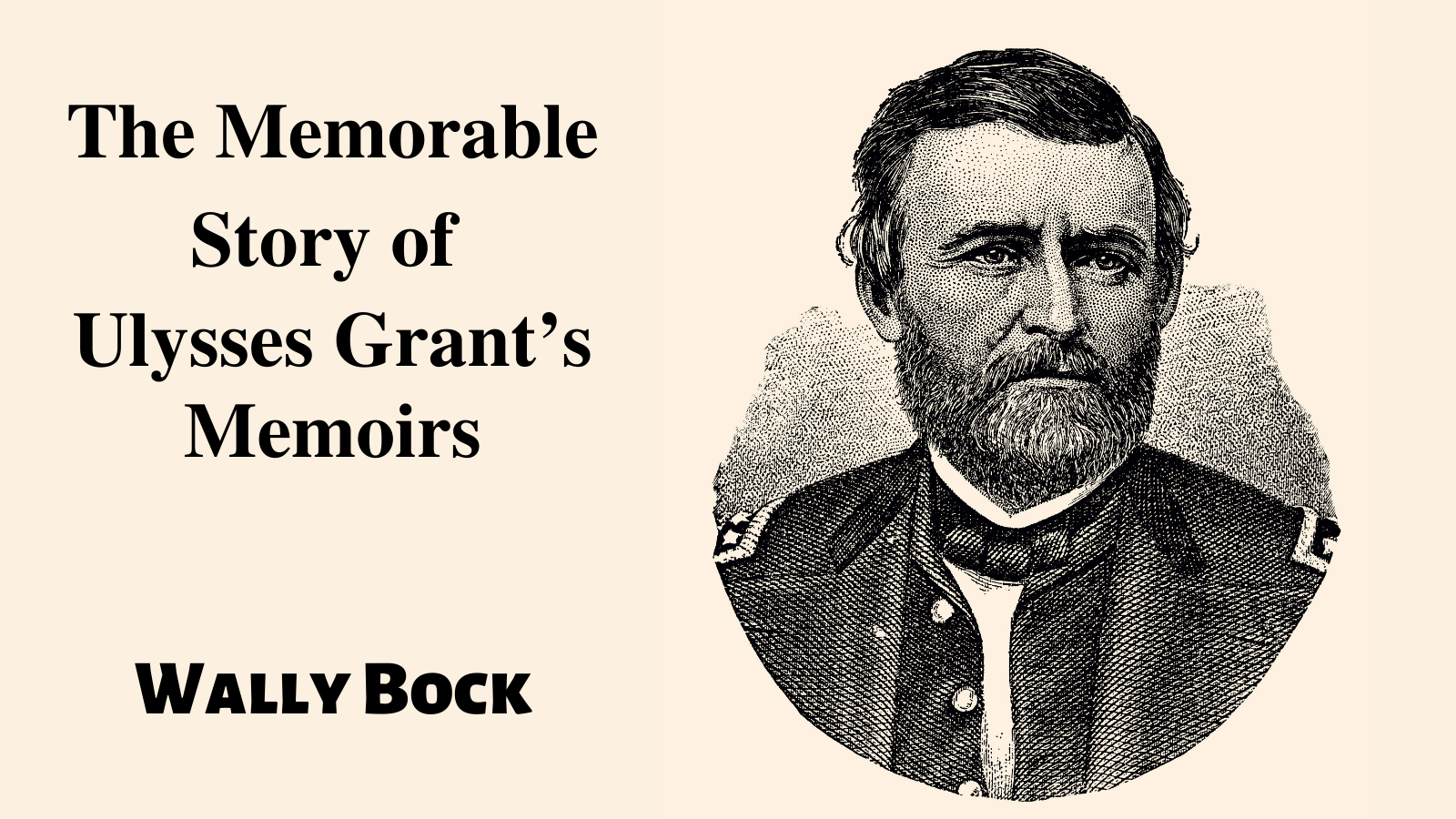 Ulysses Grant’s personal memoirs are a classic. Historian Ron Chernow described them as “The foremost military memoir in the English language.” I read the memoirs several years ago and I’ve dipped into them from time to time since. But it was only recently that I learned the story of how they came to be written.
Ulysses Grant’s personal memoirs are a classic. Historian Ron Chernow described them as “The foremost military memoir in the English language.” I read the memoirs several years ago and I’ve dipped into them from time to time since. But it was only recently that I learned the story of how they came to be written.
Grant’s memoirs might not have been as excellent or even seen the light of day except for two men. You’ve probably never heard of one. You’re almost sure to have heard of the other but not in this context.
Let’s set the stage.
Background
For a while, it looked like Grant would not write any kind of book. Other generals wrote memoirs to tell their tale of heroism. Grant remained silent. One reason was he didn’t like talking about himself. The other reason was that he thought he couldn’t write well enough. The day he left the White House for the last time as President, a reporter asked him if he was going to write a book. Grant said no, he wasn’t, “There are enough books already.”
Century Magazine commissioned articles from various Civil War Generals. Grant declined to write one. That’s how it stood until 1884.
1884 was the year that Grant suddenly found himself destitute. He’d been swindled by a fellow named Ferdinand Ward. To make things worse, Ward had used Grant’s name to convince others to invest with him. They lost their money, too.
Grant told Century he would be willing to write four articles for them about battles in the Civil War. They offered him $500.00 an article. Grant didn’t know at the time that that was below the going rate for authors with name value, which Grant had in spades. Grant didn’t know anything about publishing, but he knew he needed the money. He set to work on the first article.
Learning To Write Differently
When he submitted it to the editors at Century Magazine, they didn’t like the writing. The article read like a straight recitation of facts or a military order. So, Century sent one of their young editors, Robert Underwood Johnson to see Grant.
Johnson showed Grant the difference between his dry recitation and writing using personal stories and observations. Grant was a disciplined and good student. He wrote the articles for Century in the style that Johnson had taught him.
Century was pleased. They decided that they would offer Grant a contract for a book of his memoirs. They knew that, with his writing style and reputation with the public, the book would sell hundreds of thousands of copies. Their plan was to offer Grant a lowball offer much like what they had paid for the articles. It might have worked, except for one thing, or rather, one man.
Enter Mark Twain
When Mark Twain discovered what Century had paid for Grant’s articles, he was aghast. He called it the same as buying a dollar from a blind man for 10 cents. Twain showed Grant how Century was offering him a deal more appropriate to an unknown and untested writer than to a war hero and former President of the United States who had already written four excellent articles.
When he learned that Grant was about to sign a contract for the book with Century, Mark Twain offered to buy the book himself. He gave Grant the choice of two very much better sets of terms. He wrote a check on the spot for $50,000.00 and agreed to pay Grant’s expenses while he was writing.
Grant enjoyed the writing. He was happy to be able to do something to assure his family would not be left destitute. But there was one more thing he needed to overcome.
One More Thing
In June 1884, Grant began to experience a chronic sore throat. He didn’t think much of it and didn’t approach a physician until later that year. That was when the “sore throat” was diagnosed as throat cancer. Doctors predicted he would be in intense pain and not live very long. Grant kept writing.
He would wrap scarves around his neck to hide the cancer. The pain was intense. After a while, he could not speak. Grant kept writing.
Analysis of the original handwritten manuscripts show his handwriting deteriorating from a strong regular hand to a cramped, painful style. The bad days came closer together. Grant kept writing.
Finally, on June 16, 1885, Ulysses Grant put down his pen for the last time. The entire memoir was complete. He died a week later.
Takeaways
Great experiences make for a great book.
Writing well is a learnable skill.
A good editor can help a writer show their best work.
Writing well can be an exciting task.
Great writing can happen in the worst circumstances.
